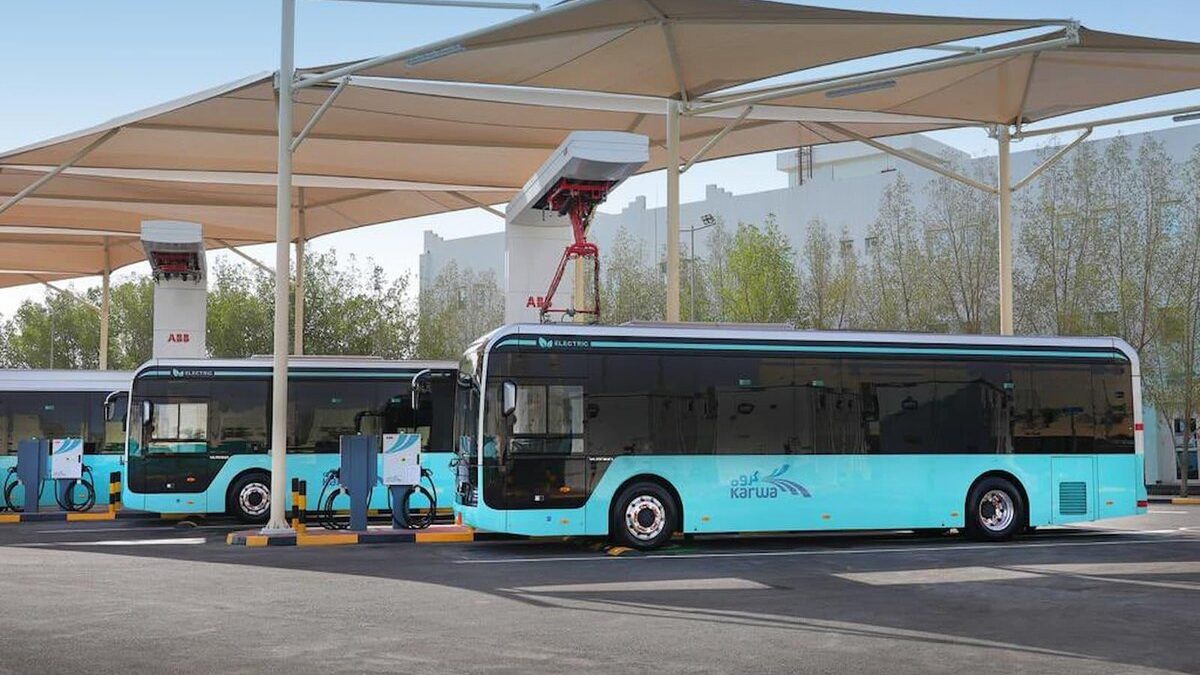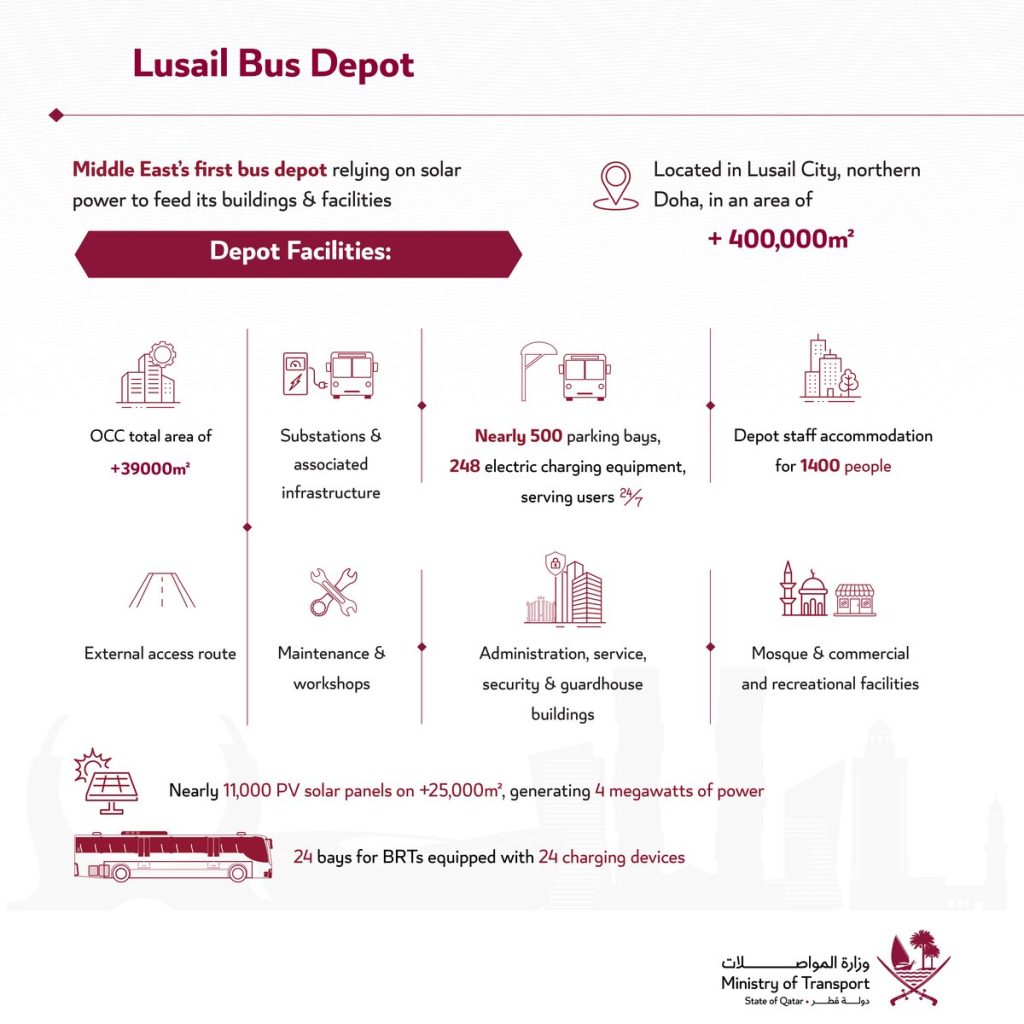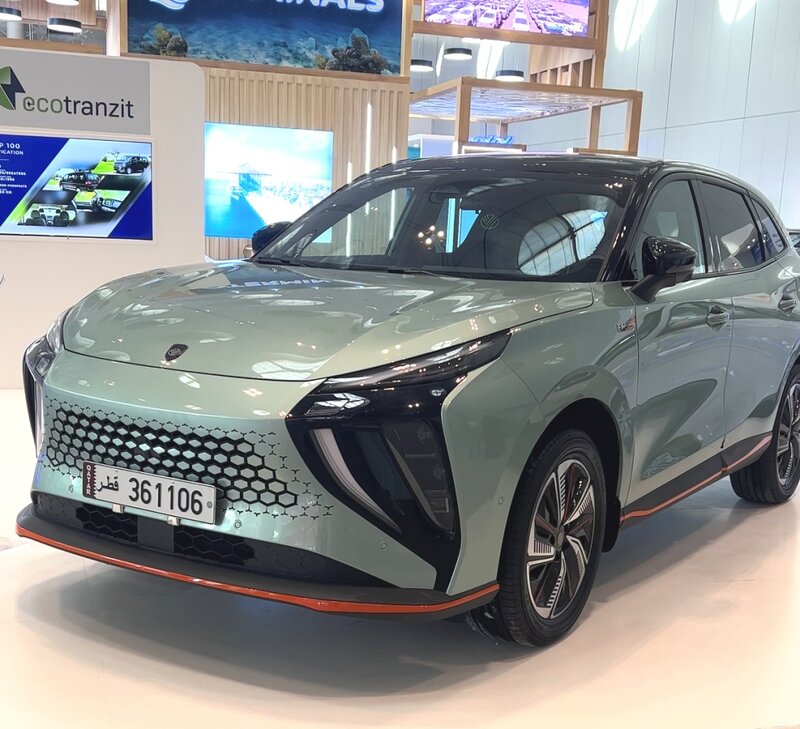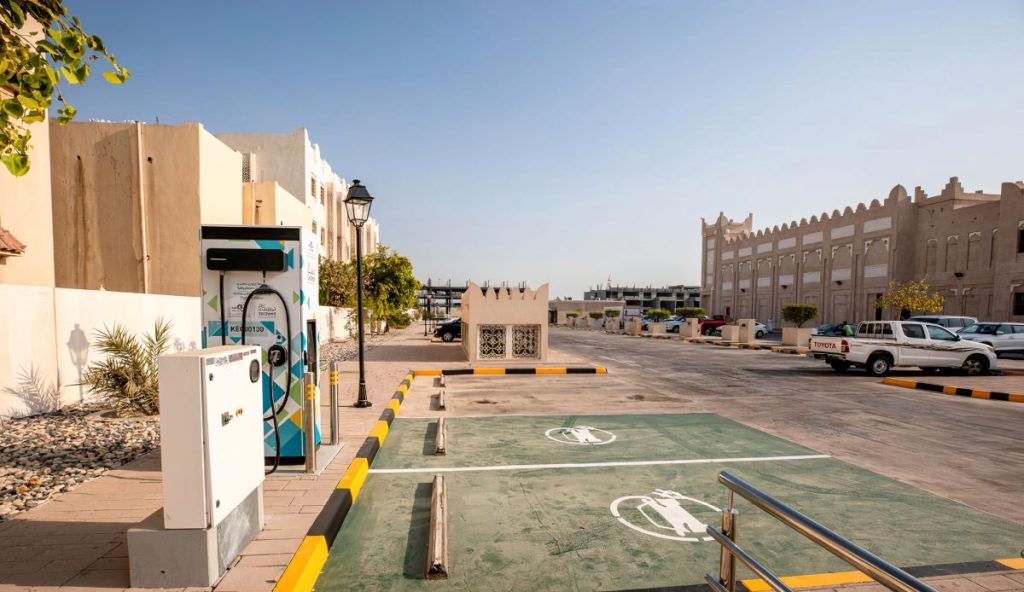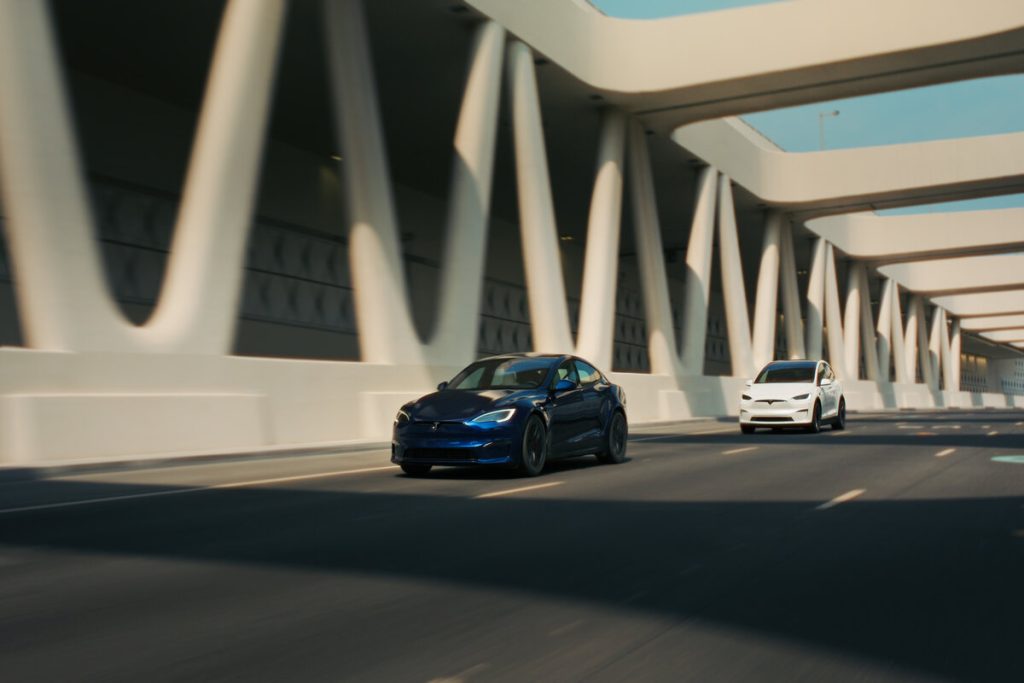The electric vehicles (EV) market is rapidly increasing in Qatar’s public transport, automotive industry and charging stations.
The Ministry of Transport announced that in line with Qatar National Vision 2030, 35% of the total vehicles of its fleet and all public transport will be changed to electric vehicles (EV) mode in the next seven years.
With the implementation of this initiative, the EV market is expected to rapidly increase during the forecast period.
The public transportation system of Qatar will be converted to fully electric, as a result of the legacy of the FIFA World Cup Qatar 2022™.
‘The mega sporting event has built a legacy for the transportation system of Qatar,’ said the Director of Public Relations and Communication Department at Mowasalat (Karwa), Khaled Hassan Kafud.
During the World Cup, around 25% of the transportation buses were electric. In 2022, 800 EVs were sold in Qatar and the country had at least 100 charging stations.
In addition to the public transportation buses, Mowasalat (Karwa) deployed about 2,500 eco-friendly buses for schools, ferrying over 60,000 students daily.
In October 2022, Lusail Bus Depot set a Guinness World Record as the largest electric bus depot with a capacity of 478 buses. The depot is part of the Ministry of Transport’s Public Bus Infrastructure Program, which consists of eight bus stations and four depots supported with more than 650 electric charging units for e-bus operations. Lusail Bus Depot relies on solar energy for charging as it includes some 11,000 PV solar panels to generate 4 megawatts of power daily to feed its buildings, in line with Qatar’s National Environment and Climate Change Strategy (QNE) goals, and helps achieve the leadership’s vision and Qatar National Vision 2030 goals.
Another first, during the World Cup, was the deployment of almost 900 e-buses, which reduced the carbon footprint of the event in an equivalent of the CO2 absorption of 18,078 trees.
First electric vehicle (EV) brand
In a bid to revolutionise the transport sector in the country, EcoTranzit Company unveiled Qatar’s first electric vehicle (EV) brand in June 2023 under its exclusive intellectual property rights.
Chairman of EcoTranzit, HE Sheikh Khalifa bin Hamad bin Khalifa bin Ahmed Al Thani, said, ‘Qatar’s dedicated focus on transforming public transportation into a sustainable and eco-friendly system was a motivating factor for our company to enter the Qatari market.’
‘Our paramount objective is to redefine the realm of intelligent mobility by offering environmentally conscious vehicles that seamlessly integrate contemporary design, top-notch specifications, and practical models suitable for diverse applications. We are committed to serving our environment, augmenting the quality of life for future generations, and forging a wholesome and sustainable future,’ he said.
‘Qatar plans to convert 25% of private vehicles into electric vehicles,’ he added. ‘As a critical initial step, we have collaborated with our global partners to secure exclusive intellectual property rights for the vehicles unveiled today. Our goal is to design and manufacture our own vehicles.’
An electric future
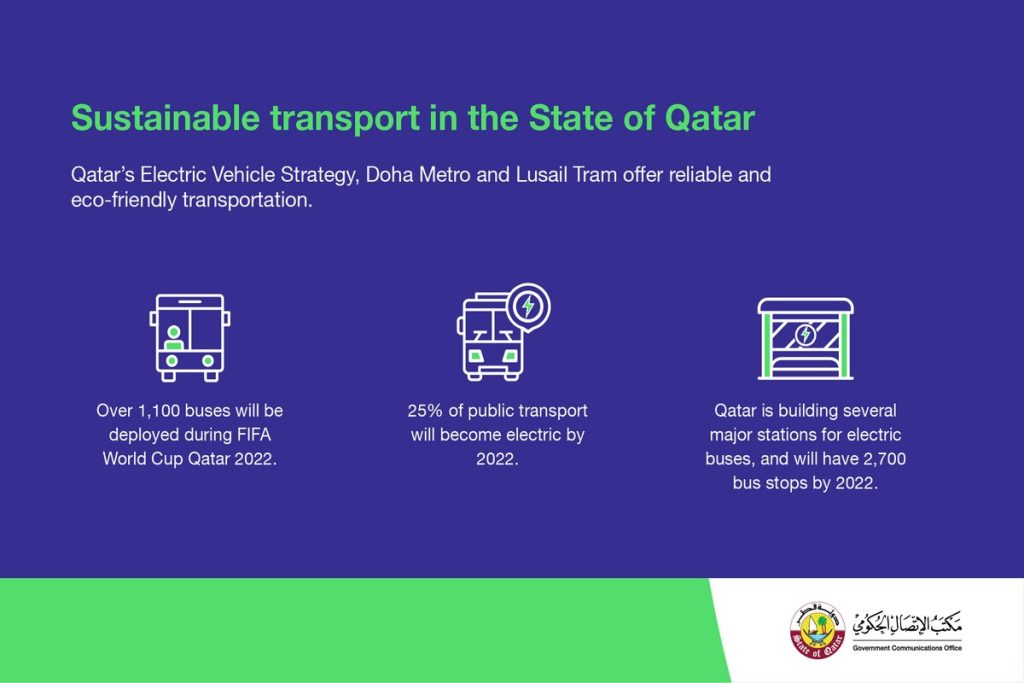
Qatar has ambitious goals to make the country more sustainable and eco-friendly. Co-founder and Board Member of EcoTranzit Saad Doukali said, ‘Qatar’s strategy for 2030 is to construct 30,000 electric charging stations by 2027. Until 2029, the public will be able to charge their electric cars free of charge at the designated charging stations.’
Qatar National Vision 2030 aims to transform Qatar into a developed country that is able to achieve sustainable development by enhancing the diversified economy that depends on reducing hydrocarbons; its investment is in the private sector which must be directed towards smart knowledge and technology.
EVs in the country are expected to reach 10% of sales by 2030 as the country works towards collaborating with EV organisations to achieve this feat.
Commenting on the partnerships by the government and EV companies, Fitch Solutions analysts report that the market will witness a rising demand and will drive passenger EV sales by more than 300% in 2023 to reach year-on-year sales volumes of around 600 units.
The report states that the EV sales will see nearly 48% annual sales growth by 2032 to reach an annual sales volume high of almost 15,000 units.
‘This will represent a passenger EV penetration rate of 20.4% in 2032,’ the report stated, adding that the market is poised to witness higher growth in the years to come.
‘The plan for 100% electrified public transport buses by 2030 will continue to drive strong growth in commercial EV sales in the country. We forecast commercial EV sales will increase by 40.5% in 2023 to reach around 1,080 units’, the report noted.
‘Trucks, pickups, and electric minibusses will gain traction in Qatar as supply chains decarbonise and as more commercial EVs are launched. We forecast average annual sales of 8.1% over 2024–32 and for commercial EV sales to reach a high of just under 2,200 units in 2032. This will represent a commercial EV penetration rate of 15% in 2032,’ the report stated.
The Qatar General Electricity and Water Corporation (Kahramaa) and the Ministry of Interior (MoI) have jointly inaugurated an EV charging station at the General Directorate of Traffic headquarters in Madinat Khalifa. This initiative is a cornerstone of a broader partnership aimed at proliferating charging stations across various MoI locations. The DC fast-charging station, with a 100-kilowatt capacity, is capable of simultaneously charging two vehicles in under 20 minutes.
Kahramaa, through Tarsheed, remains at the forefront of augmenting the EV charger network.
Boasting the launch of over 160 swift chargers, the corporation is steadfast in its mission to commission 300 units by the end of 2024, with an ambitious target of 600 units by 2025.
Tesla launches in Qatar
Tesla opened its online Design Studio in Qatar. Customers can configure and order Model S, Model 3, Model X and Model Y with deliveries starting in the first quarter of 2024.
In January 2024, Tesla will open a pop-up location at Doha Festival City where customers will be able to see and test-drive our vehicles. In addition, in January, Tesla owners will have access to the first Supercharger location in Doha, followed by a second one in February giving customers access to 12 individual Superchargers in total delivering up to 250 kW of power. At a Supercharger, a Tesla can retrieve up to 322 km of range in 15 minutes.
A Store and a Service location will open in Doha in the first quarter of 2024. The latter will provide Tesla owners access to quick and seamless service for their car.
Residents of Qatar can now order Model S, Model 3, Model X and Model Y. Despite their distinct qualities, they all share the unmistakable Tesla DNA, marked by a commitment to sustainability, cutting-edge and intuitive technology and exhilarating performance. These four vehicles offer unique characteristics and features designed to cater to a wide range of customer preferences. Whether you are a family of 7, a young couple who likes camping in the desert or a seasoned driver who wants to enjoy peaceful drives along the coastline, there is a Tesla for you.
For more information, visit tesla.com/en_qa
Author: Ola Diab
Copyright © Marhaba Information Guide. Reproduction of material from Marhaba Information Guide’s book or website without written permission is strictly prohibited. Using Marhaba Information Guide’s material without authorisation constitutes plagiarism as well as copyright infringement.


